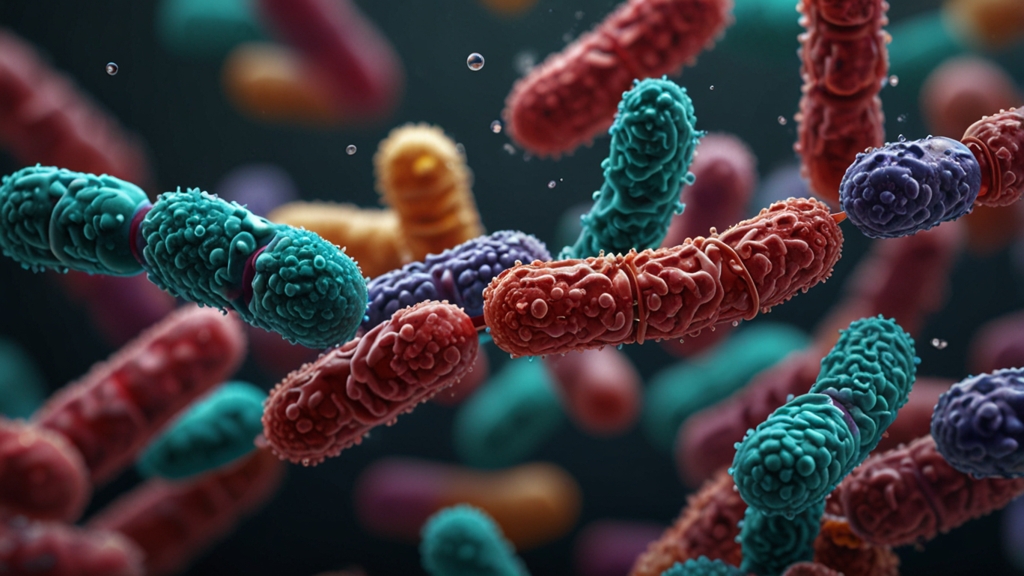Superbugs: Are We Winning the War on Antibiotics?
In the shadow of today's relentless medical advancements, a silent and growing threat looms large: superbugs. These antibiotic-resistant bacteria present a formidable challenge to modern medicine, raising critical questions about our ability to combat infectious diseases effectively.
The Rise of Superbugs
Superbugs are not a new phenomenon. They have emerged gradually, a consequence of the misuse and overuse of antibiotics. Bacteria naturally evolve defenses against drugs designed to kill them, but the rate at which they develop resistance has accelerated, outpacing the development of new antibiotics. This imbalance has resulted in infections that are increasingly difficult, and sometimes impossible, to treat.
Understanding Antibiotic Resistance
Antibiotic resistance happens when bacteria change in response to the use of these medicines. This makes infections harder to treat, leading to longer hospital stays, higher medical costs, and increased mortality. Common infections like pneumonia, tuberculosis, gonorrhea, and salmonellosis are becoming harder, and sometimes impossible, to treat as antibiotics become less effective.
"The world is facing an antibiotic apocalypse. Unless action is taken now, in 20 years' time we could be back in the 19th century when infections killed whole families," warns Dame Sally Davies, the UK's former Chief Medical Officer.
Combatting Superbugs
The fight against superbugs involves a multifaceted approach:
- Development of New Antibiotics: Innovative science and the creation of new classes of antibiotics are essential. However, painfully few new antibiotics have been developed in the past few decades due to scientific, regulatory, and financial challenges.
- Prudent Use of Existing Antibiotics: Healthcare providers and patients must use antibiotics judiciously. Overprescription and misuse are significant contributors to resistance. Strict guidelines and stewardship programs help ensure these drugs are prescribed only when necessary.
- Infection Control and Hygiene: Simple measures such as hand hygiene and the use of protective equipment in hospitals can significantly reduce the spread of resistant bacteria.
- Global Cooperation: Superbugs do not respect borders, making international collaboration crucial. Sharing data, research, and resources can help track and mitigate the spread of resistance.
Challenges and Solutions
The development of new antibiotics is a slow and costly process. Pharmaceutical companies are often reluctant to invest in them due to the high costs and low returns. Government incentives and collaborations with research institutions are vital to stimulate the discovery of new drugs.
In addition, the success of antibiotic stewardship programs hinges on widespread education and commitment from both healthcare providers and patients. Misconceptions about antibiotics – such as the belief that they are effective against viruses – need to be addressed through public health campaigns.
Moreover, improving global surveillance of antibiotic resistance patterns helps in understanding and responding to emerging threats more effectively. The WHO's Global Antimicrobial Resistance Surveillance System (GLASS) is one initiative striving to provide a comprehensive picture of the global issue.
"We cannot tackle this challenge individually. It requires a global effort from every country, every health system, and every individual," asserts Dr. Tedros Adhanom Ghebreyesus, Director-General of the World Health Organization.
Hope on the Horizon?
Despite the uphill battle, there are reasons for optimism. Advances in genomics and biotechnology offer new pathways to discovering and developing antibiotics. Novel approaches such as bacteriophage therapy, where viruses are used to infect and kill bacteria, show promise. Additionally, alternative treatments like antimicrobial peptides and immune system modulators are being explored.
The medical community is also increasingly focused on preventive measures, such as vaccines, which can reduce the need for antibiotics by preventing infections in the first place. Enhanced infection control practices and the responsible use of antibiotics in agriculture also play a critical role in reducing the emergence of resistance.
Conclusion
The war on superbugs is far from over, and the battlefield is constantly evolving. While the situation is dire, it is not hopeless. Through innovation, global cooperation, and a commitment to responsible antibiotic use, we can turn the tide against these resistant foes. The road ahead is challenging, but with determination and collective action, we have the potential to preserve the efficacy of these lifesaving drugs for future generations.
"Antibiotics have transformed medicine, but stewardship is crucial to ensure they remain effective tools in the fight against infectious diseases," emphasizes Dr. Anthony Fauci, Director of the National Institute of Allergy and Infectious Diseases.
In conclusion, winning the war on antibiotics requires not only scientific breakthroughs but also a concerted and sustained effort from the entire global community. Only then can we hope to keep superbugs at bay and secure a healthier future for all.












